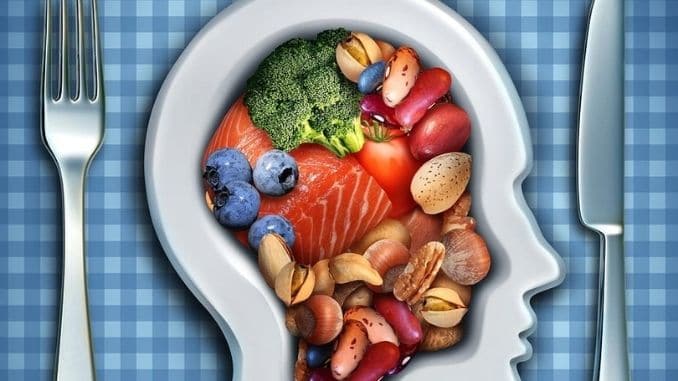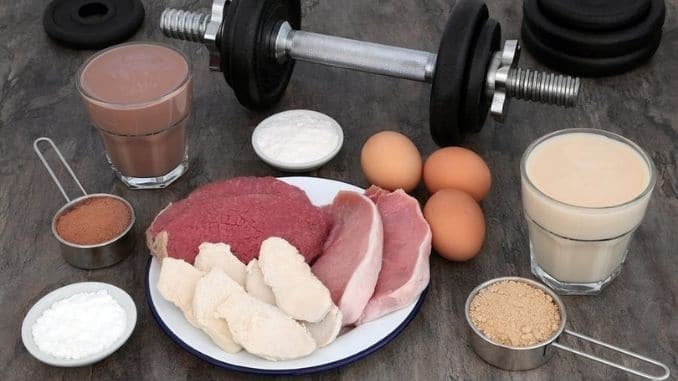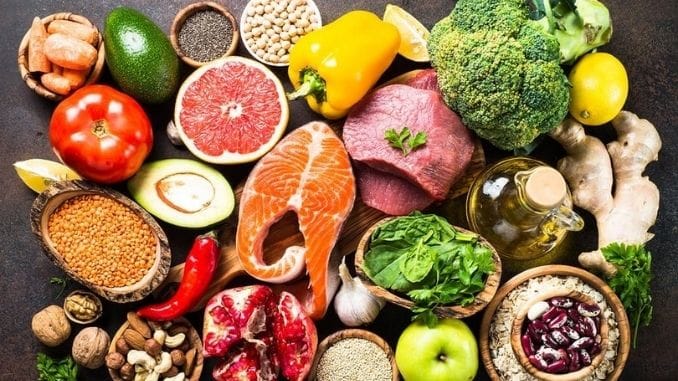
Histidine, isoleucine, leucine, lysine, methionine, phenylalanine, threonine, tryptophan, and valine are considered essential amino acids for the human body. An essential amino acid is one that the body needs to function properly but cannot itself produce. These nine amino acids cannot be manufactured by the body and must be consumed through diet, nutritional supplementation, or a combination of both. In this article let’s learn more about amino acid guide.
Essential Amino Acid Guide
In this guide, you’ll find out which amino acids can easily be obtained from eating a healthy diet, and the amino acids you may want to consider taking in supplement form to achieve a proper nutritional balance.
What Does the ‘L’ Mean In Amino Acid Supplements?
If you’ve ever shopped in the amino acid section of the health food aisles, you’ve likely noticed the letter “L” preceding the name of each amino acid on the labels (for instance, L-lysine). The “L” stands for levorotatory. There’s another form of amino acid called dextrorotatory — indicated by a “D” in front of the amino acid name. Without getting into the lengthy details regarding the molecular structure of each amino acid form, the “L” amino acids are easier for the human body to use than the “D” amino acids because they’re more similar to the amino acids already produced by the body.
Essential Amino Acid Guide: What To Take And What To Skip
1. Histidine
Necessary for the body’s production of red and white blood cells (among other functions), histidine is an amino acid that is essential for overall good health. Some experts consider histidine a semi-essential amino acid because the adult body produces very tiny amounts of the nutrient on its own. However, we generally need far more histidine than we can produce, which warrants the inclusion of histidine in this essential amino acid guide.
Moreover, histidine helps protect the body from radiation damage. It can also reduce the body’s response to allergens and can be effective in treating inflammatory conditions like arthritis. Histidine also lowers blood pressure and protects the brain against degenerative conditions like Parkinson’s disease and Alzheimer’s disease.
-
How Can I Get An Adequate Amount Of Histidine?
Histidine is abundant in white meat from chicken and turkey, beef, duck, pork, and seafood — especially tuna. Eggs and dairy products also contain it in lesser amounts. Vegetarian sources also include tofu, wheat germ, beans, and legumes.
-
Histidine Supplements — Take Or Skip?
Eating a varied diet easily provides histidine, but supplementation is a good idea in certain instances. If you don’t eat much in the way of animal products each day, and your protein intake is low, it may be wise to consider supplementing your diet with histidine.
People who are very ill, those recovering from an illness or patients receiving radiation treatments should also speak with their health advisors about histidine supplementation. Similarly, people under considerable stress may benefit from histidine supplements. Researchers have found that stress, either physical or psychological, increases the body’s need for histidine.
2. Isoleucine
Isoleucine is one of the three essential amino acids classified as a branched-chained amino acid (BCAA). BCAAs are often used as medicine to treat rare and serious health conditions. Isoleucine, in particular, is a BCAA that helps the body produce and repair muscle tissue. It’s also necessary for blood clotting and blood sugar regulation.
-
How Can I Get An Adequate Amount Of Isoleucine?
Isoleucine-rich foods include egg whites, most meats, various seeds, nuts, soy protein, lentils, shrimp, fish, and cottage cheese. It’s found in numerous other foods in smaller quantities.
-
Isoleucine Supplements — Take Or Skip?
Isoleucine is also acquired easily by eating a varied, healthy diet. Most people can skip this supplement if they eat well. However, regardless of diet, people who exercise rigorously each day — particularly bodybuilders — may want to consider supplementing with isoleucine and the other BCAAs.
3. Leucine
A second essential BCAA is leucine. Leucine is a powerful muscle-building amino acid. Studies also indicate that leucine may be helpful in preventing and treating adult-onset diabetes.
-
How Can I Get An Adequate Amount Of Leucine?
Leucine is added, in the form of soy protein isolate, to many breakfast cereals, granola bars and packaged snacks. The best whole-food sources of leucine are soybeans, cod, seaweed, cow’s milk, cheese, and pumpkin seeds.
-
Leucine Supplements — Take Or Skip?
Skip this one if you have a varied diet and you are also in good health. Leucine is one of the essential amino acids that can be detrimental in excess. It’s wise to supplement under the advice of a healthcare professional. Practitioners often recommend that folks use leucine supplements when they’re recovering from major surgery or a serious illness.
4. Valine
The third of the essential BCAAs, valine helps repair muscle tissue and promotes muscle growth like the other BCAAs. However, valine is an essential BCAA that also helps regulate the body’s central nervous system and brain function. Current research indicates that valine is also helpful in repairing the liver and other organs after damage from alcoholism and drug abuse.
-
How Can I Get An Adequate Amount Of Valine?
You’ll find high amounts of valine in meat, soy protein, dairy products, lentils and mushrooms.
-
Valine Supplements — Take Or Skip?
Skip valine supplements if you’re getting enough quality protein in your diet and you’re not a bodybuilder. If you are in need of supplementation, do so with respect to the recommended dosage from your health care practitioner. Excess amounts of valine can cause hallucinations and also impair kidney function. The three essential BCAAs are often taken in a combined supplement. It’s a good idea to take all three — valine, isoleucine and leucine — together because they work synergistically to benefit the body.
5. Lysine
The immune system is seriously dependent on amino acids in the body. Lysine is a crucially important essential amino acid for the development of antibodies and immunity. It is indeed helpful for the prevention and treatment of shingles and other illnesses caused by the herpes virus. Lysine also helps regulate the balance of insulin and glucose in the blood.
-
How Can I Get An Adequate Amount Of Lysine?
Cod, egg whites, soy protein and gelatin are excellent sources of lysine. Also, bacon, anchovies and dairy products are high in lysine.
-
Lysine Supplements — Take Or Skip?
Skip the supplement and fill your plate with good protein sources. While lysine supplementation is generally safe, large daily doses can upset the balance of other amino acids in the body. Lysine is indeed an excellent as natural medicine and should be utilized to the fullest to naturally treat the body in times of illness or environmental stress. However, long-term, daily supplementation is best done in conjunction with frequent blood testing and under the care of a health professional.
6. Methionine
Methionine is a helper amino acid. It aids the body in producing other amino acids and also helps the body effectively process dietary fat.
-
How Can I Get An Adequate Amount Of Methionine?
Brazil nuts are an amazing source of methionine. Because Brazil nuts are also a highly nutritious food for other reasons, consider buying some and keeping them in an area where you’re prone to snacking. Other foods high in methionine include eggs, cheese, chicken, beef, tuna, and also many different seeds.
-
Methionine supplements — Take Or Skip?
Skip methionine supplementation if you eat a variety of high protein foods, and you’re in good health. Methionine is also present in nearly all protein-containing foods. In some cases, methionine supplementation is recommended, such as frequent urinary tract infections, certain allergies, depression and degenerative brain conditions. Speak with your medical practitioner about supplementation if you suffer from the aforementioned conditions.
7. Phenylalanine
The essential amino acid in this guide, phenylalanine is indeed necessary for human bodies to produce and maintain vital hormones and neurotransmitters for the brain. It’s also responsible for the body’s thyroid hormones and metabolism.
-
How Can I Get An Adequate Amount Of Phenylalanine?
Phenylalanine is found abundantly in animal protein foods like fish, meat, eggs and dairy products. Vegetarians and vegans can enjoy good levels of phenylalanine in soy products, nuts, seeds and beans.
-
Phenylalanine Supplements – Take Or Skip?
People with the rare disorder called phenylketonuria (PKU) should never use supplements containing phenylalanine. (PKU is normally diagnosed in childhood.) Because most protein-containing foods also contain phenylalanine, you can generally skip this supplement if you eat a healthy and varied diet full of quality proteins.
8. Threonine
The essential amino acid in this guide, threonine supports digestive health, immune response, brain and cardiovascular functions in the body. Threonine also helps protect the liver and connective tissues in the body. Of the essential amino acids, you could say this one is super essential.
-
How Can I Get An Adequate Amount Of Threonine?
Thankfully, almost all high-protein foods contain threonine. It’s also found in watermelon seeds and seaweed.
-
Threonine Supplements — Take Or Skip?
Because it’s not difficult to get adequate levels of threonine in the diet, most people will not need a threonine supplement. We say skip this one if your protein intake is good and you’re not advised by a medical practitioner to begin supplementation. Too much threonine from supplements can also be toxic.
9. Tryptophan
Tryptophan is an amino acid that’s vital for the effectiveness of the entire nervous system and responsible for delivering messages of well-being throughout the body. When the body has enough tryptophan, it’s more relaxed and not in fight mode. Optimal levels of tryptophan have been linked to less inflammation, more stable moods, better digestion, and good sleep patterns.
-
How Can I Get An Adequate Amount Of Tryptophan?
While most of the essential amino acids are fairly easy to obtain through the diet, tryptophan is not as bioavailable in foods. While many foods do contain tryptophan, it isn’t easily absorbed in the body. Soybeans and unsweetened cocoa are high in the tryptophan. Also, eggs, meat products, cashews, brown rice and peas contain high tryptophan levels.
-
Tryptophan Supplements — Take Or Skip?
Most adults will benefit from a tryptophan supplement. Tryptophan is now available over-the-counter in most countries and by prescription in others, thanks to solid medical research on the amino acid. Tryptophan has been shown to be helpful in treating depression, sleep disorders, irritable bowel syndrome and anxiety — among other ailments.
Conditional Amino Acids
Arginine, cysteine, glutamine, glycine, ornithine, proline, serine and tyrosine are only sometimes essential to the body, particularly during illness or intense stress.
Blood Testing And Responsible Supplementation
Although it’s tempting to browse through the vitamin store and try the items on sale that look appealing, it’s wise to have your blood levels tested and consult with a trusted healthcare provider before beginning a daily supplementation practice. This advice is particularly applicable concerning amino acids. What may help one person may be damaging to another person, based on individual chemical makeup, latent conditions, heredity and the like.
If you want to overcome the aches and pains that have been keeping you from enjoying life, then check out the Joint Complex 4000, here!





